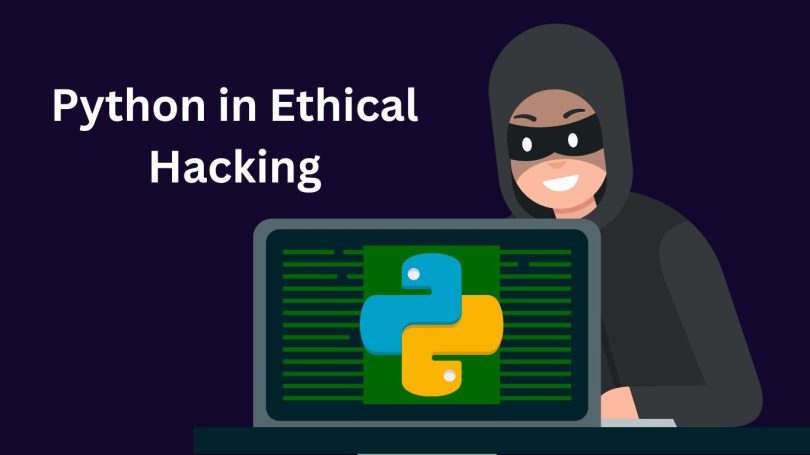Ethical hacking is one of the most promising and well-paid areas for IT specialists and enthusiasts. Since an ethical hacker’s work mainly depends on various command line tools, it is inevitable to gain fluency in a scripting language such as Python. Python has become very popular since it has applications in many industries and is easier to learn than other programming languages. Familiarity with the strength of Python in ethical hacking will allow the developer to create his or her scripts in the course of pen testing.
Ethical hacking is the act of a professional hacker legally and purposefully planning to penetrate an organization’s systems and gadgets. This practice enables ethical hackers to evaluate the organization’s defense and even find loopholes within their systems and networks.
Python is an easy-to-learn and easy-to-code language developed by Guido van Rossum in the late eighties. The current form of Python is Python 3 and it is widely used in web development, machine learning applications and many other sophisticated software technologies. That means that it is appropriate for beginners who have no prior experience in programming as well as for those who programmed before in other programming languages like C++ or Java.
Benefits of Using Python in Ethical Hacking:
Third-Party Modules:
Python has a third-party repository called Python Package Index (PyPI) and many modules allow this language to integrate with virtually all the other languages and platforms.
Extensive Library Support:
It has a rich standard library to cover different subjects like string processing, internet protocols, web services utilities and OSI layers. It has a large collection of classes that contain solutions to many of the reoccurring programming problems, thereby minimizing the amount of code that has to be written by the developers.
Community Development:
Unfortunately, being an open-source language means that it does not come with official technical support; however, this has paved the way for the creation of strong communities. These communities help build up a library of assets that would sustain the language’s growth, advancement and increased use.
User-Friendly Data Structures:
List and dictionary are provided in Python as the runtime structures, which allows for creating efficient runtime structures. Moreover, the dynamic high-level data typing of Python reduces the amount of support code, which is required, again improving the developer’s productivity.
Some Additional Tips to Master Python for Ethical Hacking:
Further recommendations for improving the knowledge of the Python programming language in ethical hacking
Stay Updated with Python Libraries:
It is recommended to do research on new libraries and to be constantly familiar with the existing ones. Some of the most popular libraries include Scapy, Requests and Beautiful Soup which can boost your ethical hacking ability.
Practice Real-World Scenarios:
Practice live by attempting CTF challenges and using websites such as Hack The Box or TryHackMe. This practical experience is very useful for gaining skills.
Automate Repetitive Tasks:
Employ python in areas that may require a lot of time, for instance, scanning networks, data collection and vulnerability tests.
Enhance Script Efficiency:
Pay special attention to how you write your code and optimize the code for efficiency. It improves effectiveness and allows your scripts to work with larger data and more complicated operations.
Collaborate with the Community:
Post on Python and ethical hacking groups; go to conferences and hackathons. Working with others can bring new perspectives and one can be up to date with new developments within the field.
Understand Cybersecurity Fundamentals:
It is recommended to strengthen your Python skills with basic knowledge of cybersecurity. For one to be an effective hacker, he/she must have adequate knowledge of network protocols, encryption and security measures.
Create a Portfolio:
Include all your projects and scripts in a portfolio. This can be useful to potential employers and also to you as a way of seeing how you are progressing and what needs to be worked on.
With these tips in your learning process, you will master Python for ethical hacking and be relevant in the constantly growing area of cybersecurity.
Conclusion:
Python is constantly growing in popularity, it is suitable for any new ethical hacker. Due to the simplicity and huge repositories such as PyPi and Scapy, ethical hackers are able to automate processes, create their own applications and perform more comprehensive analyses. The knowledge of Python helps ethical hackers respond to new threats, which are constantly emerging in the sphere of cybersecurity. Using Python as your main, search the Internet, try different libraries, and develop your ethical hacking profile. Ethical hacking has a promising future, and Python is the language that opens the door to it.






Leave a Comment